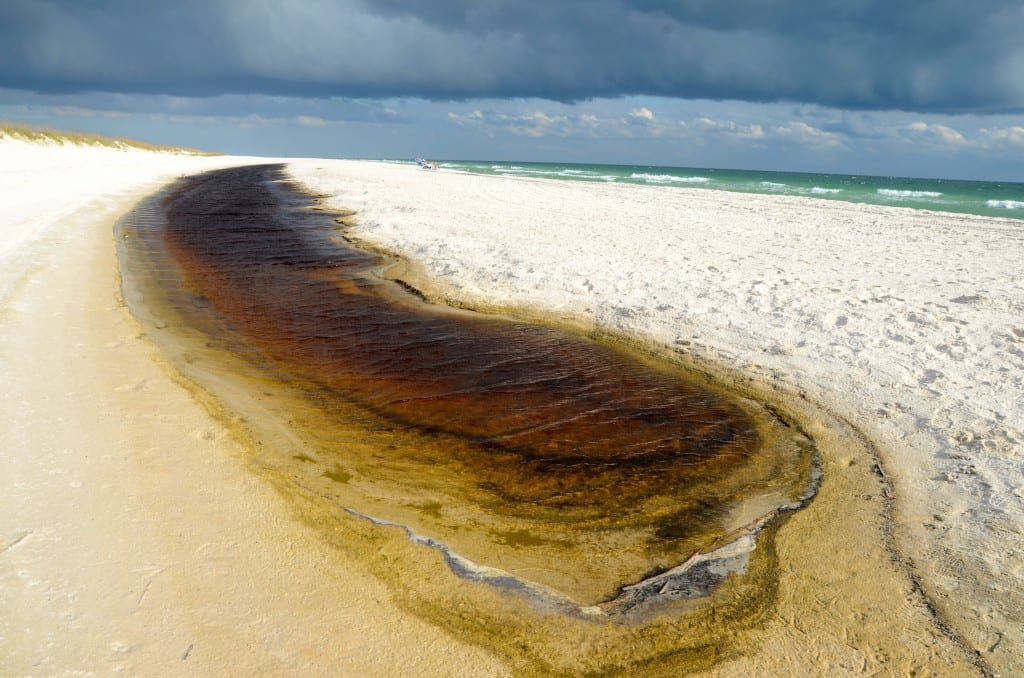
Left over oil and chemicals from the BP oil spill. See more images here. [Click on the image for a larger view]: Glynn Wilson
By Glynn Wilson –
The Deepwater Horizon oil disaster in the Gulf of Mexico in April 2010, and the waves of tar balls deposited on the beaches shortly thereafter, prompted the National Oceanic and Atmospheric Administration to produce a tar ball fact sheet. Among the factoids was one stating that those sticky, coin-sized clumps of weathered oil, though unsightly and annoying, are not a human health hazard.
But new research findings out of Auburn University indicate that tar balls are reservoirs for a multitude of dangerous bacteria, including at least one pathogen that can and has caused life-threatening sickness and death in some humans. Vibrio vulnificus, a naturally occurring bacterium that thrives in warm seawater, is absorbed by filter-feeding oysters and is most often associated with severe illness and death in individuals with certain medical conditions, such as liver disease or cancer, who eat raw oysters. This is the leading cause of death from seafood consumption in the U.S.
Especially among those at-risk populations, exposure to the bacterium through a wound can lead to tissue-killing, potentially fatal infections, according to the research, originally published in EcoHealth, a global, peer-reviewed journal of the International Association for Ecology and Health.
Auburn aquatic microbiologist and study leader Cova Arias said the discovery of high numbers of V. vulnificus in tar balls has “clear public health implications.”
“Tar balls are sticky, especially during the warmer months, and they are difficult to remove,” Arias said. “If a tar ball contacts a skin abrasion, it could vector V. vilnificus and cause severe wound infections that may lead to death. People whose immune systems are compromised should be fully aware of the risks and go out of their way to avoid any contact with tar balls.”
Scientists describe it as an “unexpected finding,” discovered during a post–oil spill study, originally designed to monitor total bacterial counts in tar balls in the weeks and months following the BP disaster washing ashore from Dauphin Island, Alabama to Gulfport, Mississippi.
“We already had the V. vulnificus methodology set up in our lab, so it made sense to analyze the tar balls for the pathogen,” Arias said. His department’s major research focus is food safety in oysters and the development of post-harvest techniques and processes that significantly reduce V. vulnificus counts in the bivalve mollusks.
At each location along the coast where they gathered tar balls, Arias and collaborators Ash Bullard, a marine parasitologist and Auburn fisheries assistant professor, and graduate research assistant Zhen Tao also, collected sand and seawater samples and found that the total bacterial counts and the number of V. vulnificus bacteria in tar balls up and down the Gulf coast were significantly higher than in the sand and seawater samples collected from the same sites.
Based on their volume and when they began to appear, the small wads of tar the scientists collected from along the Gulf beaches likely were from the BP oil spill.
“What matters is that people be aware that tar balls can be hazardous to their health,” she said, adding “the more tar balls you encounter, the higher the risk.”














